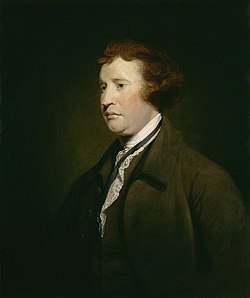Edmund Burke Quote
Related Quotes
She was a gypsy, as soon as you unravelled the many layers to her wild spirit she was on her next quest to discover her magic. She was relentless like that, the woman didn't need no body but an open r...
Nikki Rowe
Tags:
adventure, artist, authentic, balance, brave heart, courage, empowering women, free spirit, freedom, growth
For everything in this journey of life we are on, there is a right wing and a left wing: for the wing of love there is anger; for the wing of destiny there is fear; for the wing of pain there is heali...
C. JoyBell C.
Tags:
ancient, flight, flying, human race, humanity, imperfection, inspirational, inspirational life, inspiring, journey
God whispered, "You endured a lot. For that I am truly sorry, but grateful. I needed you to struggle to help so many. Through that process you would grow into who you have now become. Didn't you know...
Shannon L. Alder
Tags:
abuse, accepting, answers, autoimmune disease, bullied, compassion, crying, cyberbullying, defamation, empathy
Language and hearing are seated in the cerebral cortex, the folded gray matter that covers the first couple of millimeters of the outer brain like wrapping paper. When one experiences silence, absent...
Michael Finkel
Tags:
activated, ancient, bedrock, brain, busy, cerebral cortex, deeper, experiences, gray matter, hearing
About Edmund Burke
Edmund Burke (; 12 January [NS] 1729 – 9 July 1797) was an Anglo-Irish statesman and
philosopher who spent most of his career in Great Britain. Born in Dublin, Burke served as a member of Parliament (MP) between 1766 and 1794 in the House of Commons of Great Britain with the Whig Party. His works shaped the political landscape of British conservative thought, and established the foundations for modern conservatism and liberal democracy. His writings also played an important role in influencing public views and opinions that followed the French Revolution of 1789, and as a result of his enduring importance in this area, he became widely regarded as the philosophical founder of Conservatism.
Burke was a proponent of underpinning virtues with manners in society and of the importance of religious institutions for the moral stability and good of the state. These views were expressed in his satirical work, A Vindication of Natural Society (1756). He also criticised the actions of the British government towards the American colonies, including its taxation policies. Burke supported the rights of the colonists to resist metropolitan authority, although he opposed the attempt to achieve independence. He is further remembered for his long-term support for Catholic emancipation, the impeachment of Warren Hastings from the East India Company, and his staunch opposition to the French Revolution.
In his Reflections on the Revolution in France (1790), Burke asserted that the revolution was destroying the fabric of good society and traditional institutions of state and society, and he condemned the persecution of the Catholic Church that resulted from it. This led to his becoming a popular leading figure within the conservative faction of the Whig Party which he dubbed the Old Whigs as opposed to the pro-French Revolution New Whigs led by Charles James Fox.
In the 19th century, Burke was praised by both conservatives and liberals. Subsequently, in the 20th century, he became widely regarded, especially in the United States and the United Kingdom, as the philosophical founder of conservatism, along with his ultra-royalist and ultramontane counterpart Joseph de Maistre.
philosopher who spent most of his career in Great Britain. Born in Dublin, Burke served as a member of Parliament (MP) between 1766 and 1794 in the House of Commons of Great Britain with the Whig Party. His works shaped the political landscape of British conservative thought, and established the foundations for modern conservatism and liberal democracy. His writings also played an important role in influencing public views and opinions that followed the French Revolution of 1789, and as a result of his enduring importance in this area, he became widely regarded as the philosophical founder of Conservatism.
Burke was a proponent of underpinning virtues with manners in society and of the importance of religious institutions for the moral stability and good of the state. These views were expressed in his satirical work, A Vindication of Natural Society (1756). He also criticised the actions of the British government towards the American colonies, including its taxation policies. Burke supported the rights of the colonists to resist metropolitan authority, although he opposed the attempt to achieve independence. He is further remembered for his long-term support for Catholic emancipation, the impeachment of Warren Hastings from the East India Company, and his staunch opposition to the French Revolution.
In his Reflections on the Revolution in France (1790), Burke asserted that the revolution was destroying the fabric of good society and traditional institutions of state and society, and he condemned the persecution of the Catholic Church that resulted from it. This led to his becoming a popular leading figure within the conservative faction of the Whig Party which he dubbed the Old Whigs as opposed to the pro-French Revolution New Whigs led by Charles James Fox.
In the 19th century, Burke was praised by both conservatives and liberals. Subsequently, in the 20th century, he became widely regarded, especially in the United States and the United Kingdom, as the philosophical founder of conservatism, along with his ultra-royalist and ultramontane counterpart Joseph de Maistre.
